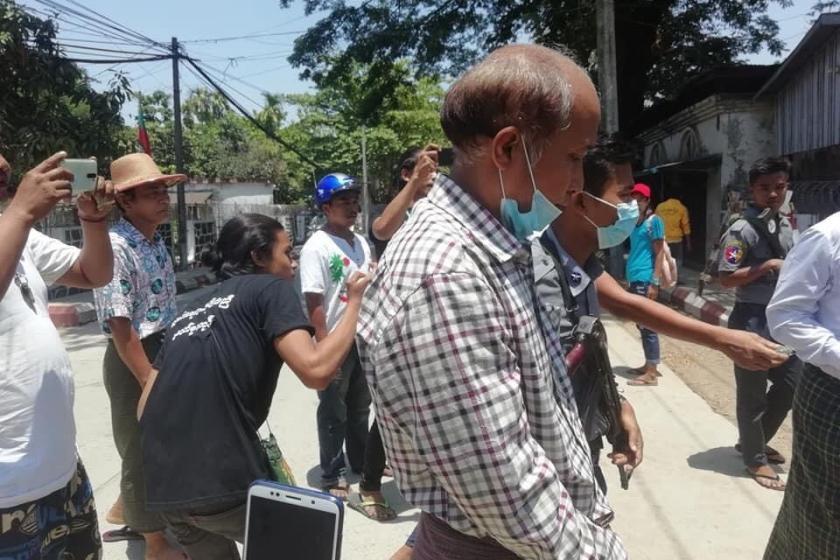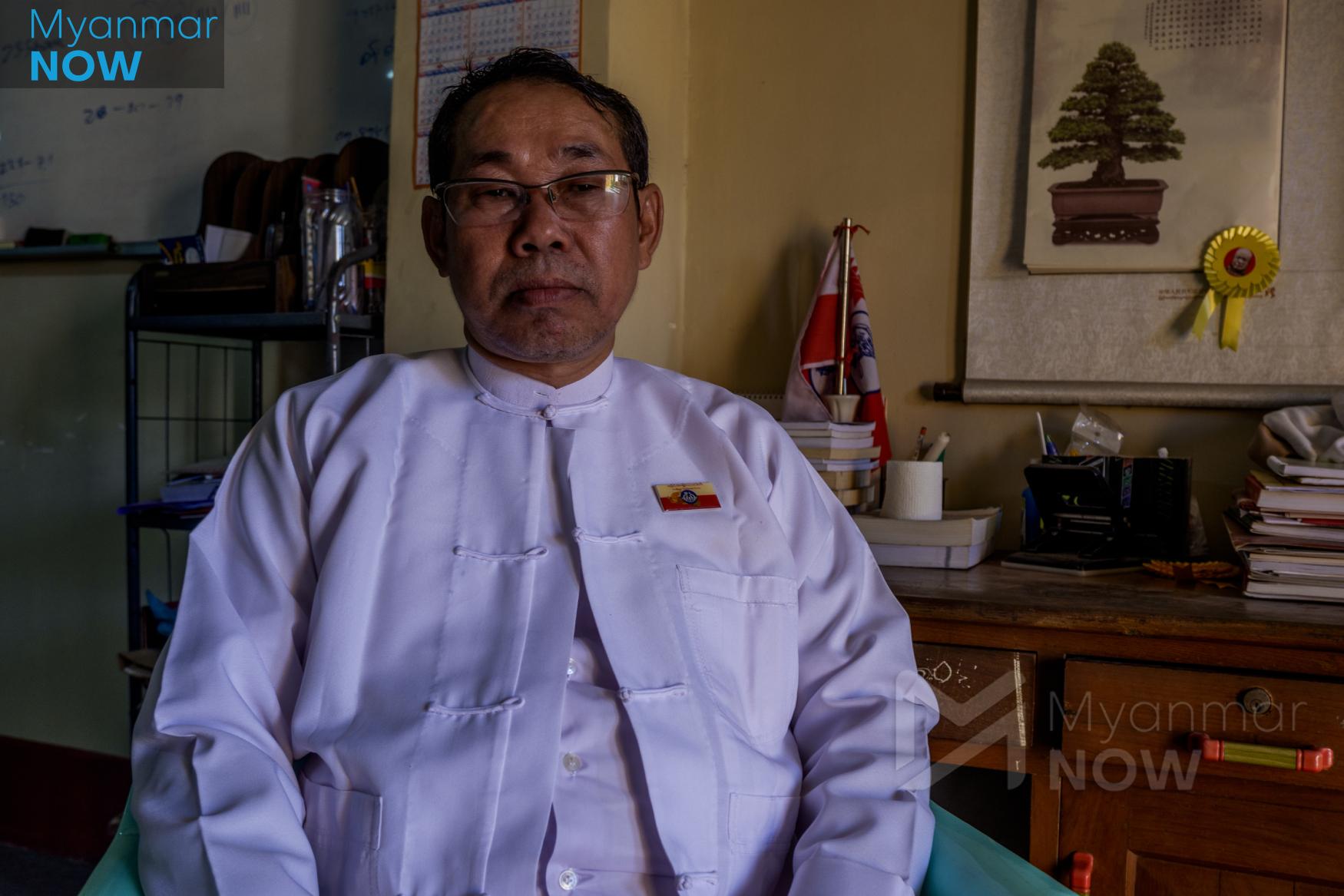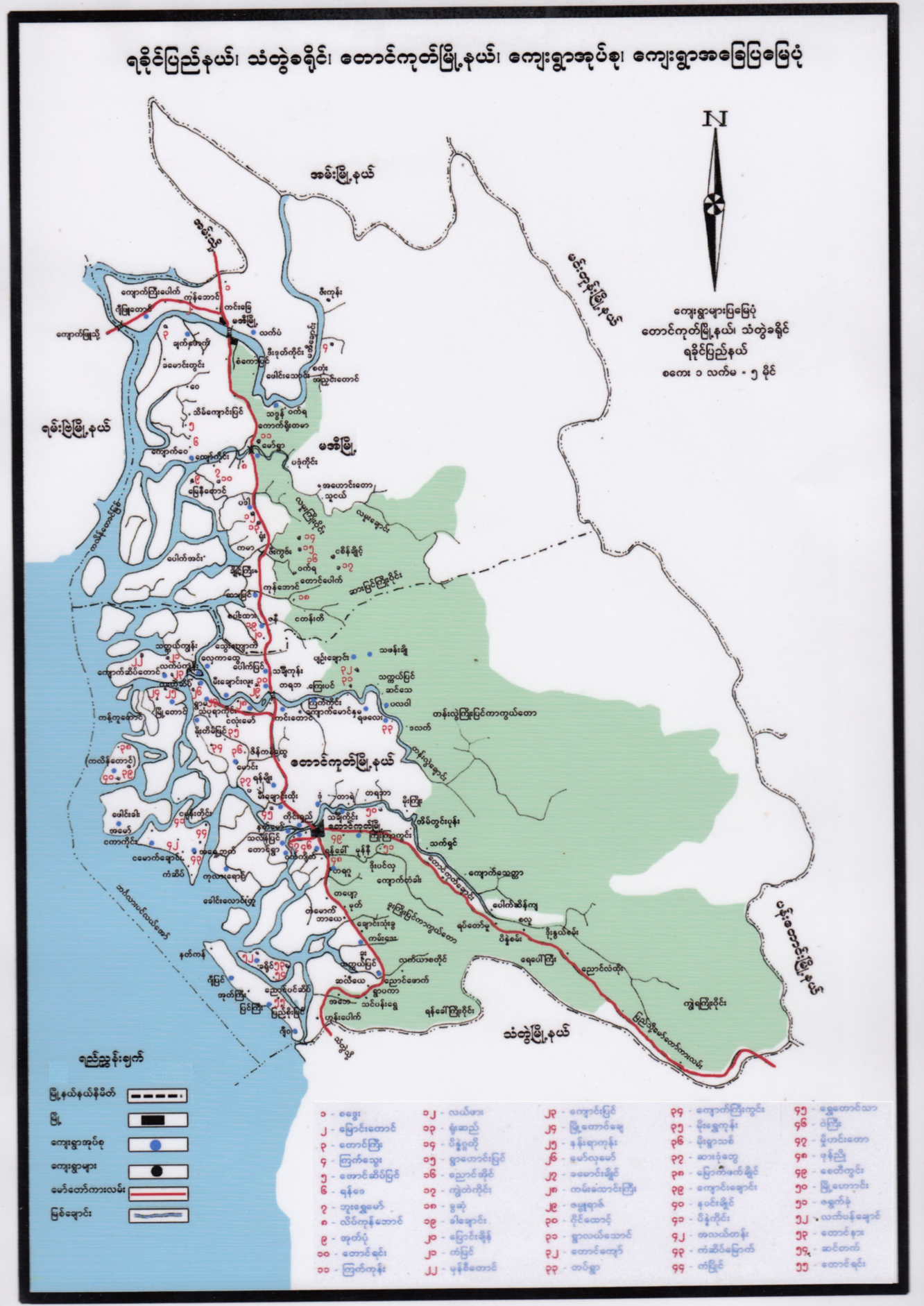
In 2012, 12 Muslim men were dragged off a bus and murdered by a mob while travelling through Taungup in southern Rakhine. It was the start of a bout of sectarian riots that helped plunge the state into the chaos it faces today.
But despite this grim mob killing, the township has since been largely peaceful and stable compared to other parts of Rakhine.
The armed conflict and hostile nationalist politics that have scarred the north – where the Arakan Army (AA) is battling the Myanmar military for greater autonomy – have mostly spared the state’s south.
But events in recent weeks suggest this is changing.
It started on May 5 when 53-year-old Than Shwe, who worked closely with the NLD and served his village’s Covid-19 prevention committee, was abducted in the early hours of the morning.
A military statement later that afternoon claimed that he had been snatched by “knife-wielding” AA members as he slept in his home in Bu Shwe Maw village.
Two days after the abduction, the Sittwe-based Development Media Group reported that several NLD members in Taungup had gone into hiding after a group of people posing as police officers tried to arrest them.
“Who else will have to run?” asked former Rakhine municipal affairs minister Min Aung, who lives in Taungup and is an NLD member, in a Facebook post. “They’ve abducted U Than Shwe and he’s just a normal civilian in Bu Shwe Maw. We don’t know if he’s been killed or not.”
Myanmar Now understands that Than Shwe acted as an unofficial right-hand man for Min Aung, who is loathed among supporters of the Arakan National Party (ANP), a Rakhine nationalist group. He was appointed to his senior role in the Rakhine government by the NLD despite the fact the ANP won the majority of votes in the state in the 2015 election, angering ANP supporters.
Parliament stripped him of this title in January 2018 after a group of 17 ANP MPs wrote a letter calling for his impeachment and accusing him of failing to fulfil his official duties.
Though generally less popular in the south, the ANP is the most influential political party in the state, with broad public support in the north and central areas, where the Rakhine language and culture dominate.
In the south, where Burmese is the lingua franca and cultural and economic ties to Myanmar’s ethnically Bamar centre are strong, the ruling NLD wins most elections.
The conflict in northern Rakhine has severely strained relations between the ANP and the NLD. The NLD government, led by the ethnically Bamar Aung San Suu Kyi, has declared its desire to “crush” the AA, which has a great deal of public support, especially among ANP voters.

Arrests signal ugly shift
A few days after Than Shwe’s abduction, the military blocked people from entering or exiting Taungup for a week. They never gave an explanation for the restrictions.
Then, on May 9 and 10, Taungup municipal president Zay Ya Kyaw and his predecessor San Ngwe – two civil servants who support the ANP – were arrested. Police then detained the ANP’s regional vice-chair Wai Thaung on May 11.
All three men were initially charged with posting false information on several nationalist Facebook pages, which they deny, but were later hit with charges under the Counter-Terrorism Law. It is unclear what the terrorism charges relate to.
Than Shwe’s abduction and the arrests of the three ANP men have raised fears that the violent and oppressive political tactics used by each side in the north are spreading south, as Rakhine and Bamar nationalists compete for dominance.
According to their legal assistant Theingi Maung, the plaintiff against Zay Ya Kyaw and San Ngwe is the administrator of the village where Than Shwe was abducted. The plaintiff in the case against the third man, Wai Thaung, has not been disclosed yet, ANP legal aid chair Tin Nyo told Myanmar Now.
Two days after his abduction, a Rakhine nationalist Facebook page accused Than Shwe of working with a local NLD official to incite violence between the ANP and the NLD, as well as the military and the AA.
The page, “National Security Organization – NSO – Taungup Township”, was created on April 4 and has 98 members from 20 local villages.

This is one of the pages the ANP men were accused of posting on when they were arrested.
Last week, all three men were released on bail, and their whereabouts are now unknown.
For Rakhine’s nationalists, the struggle against the NLD in the political sphere is part of the same fight playing out on the battlefield against the military.
When Myanmar Now asked ANP leader Thar Tun Hla in 2019 why the AA decided to take up arms, he said: “Ethnic minorities in Myanmar are denied self-determination, and there’s been no political answer to this so, ever since independence, they’ve chosen armed resistance. We just see it as ethnic rebels trying to regain the rights we’ve all lost with the tools they know how to use.”



